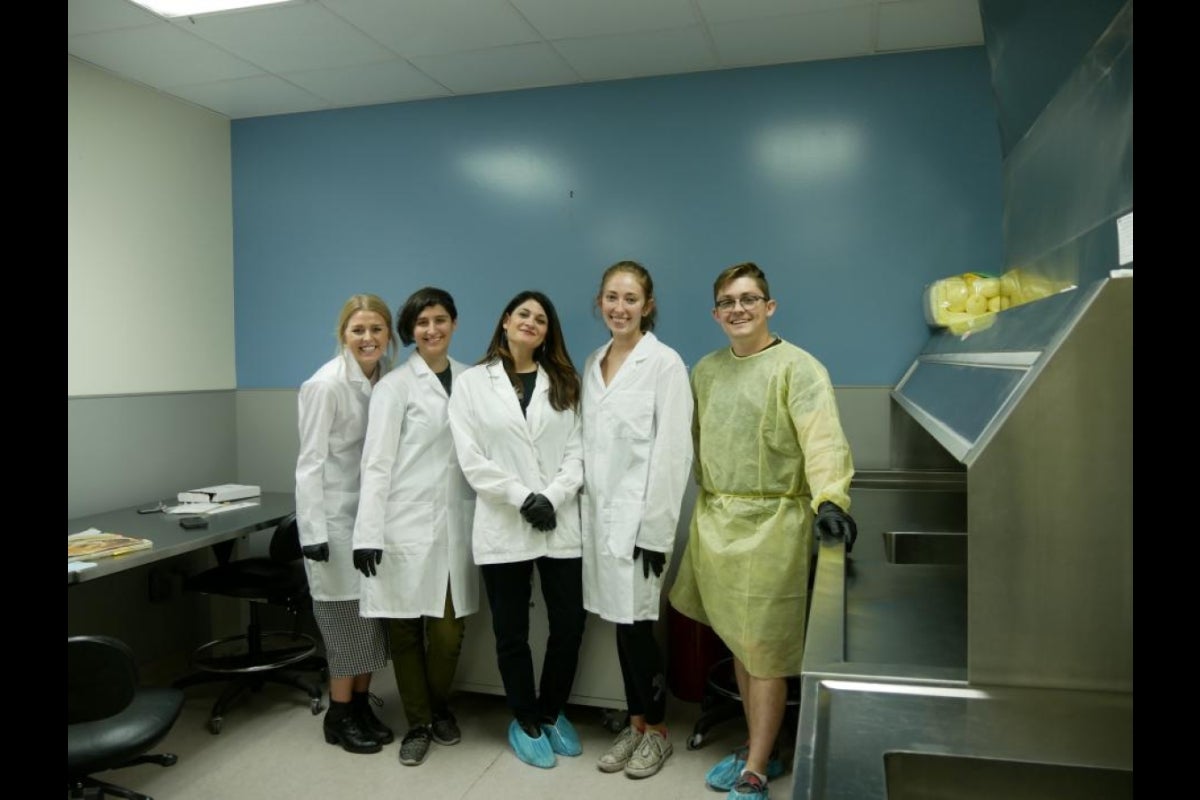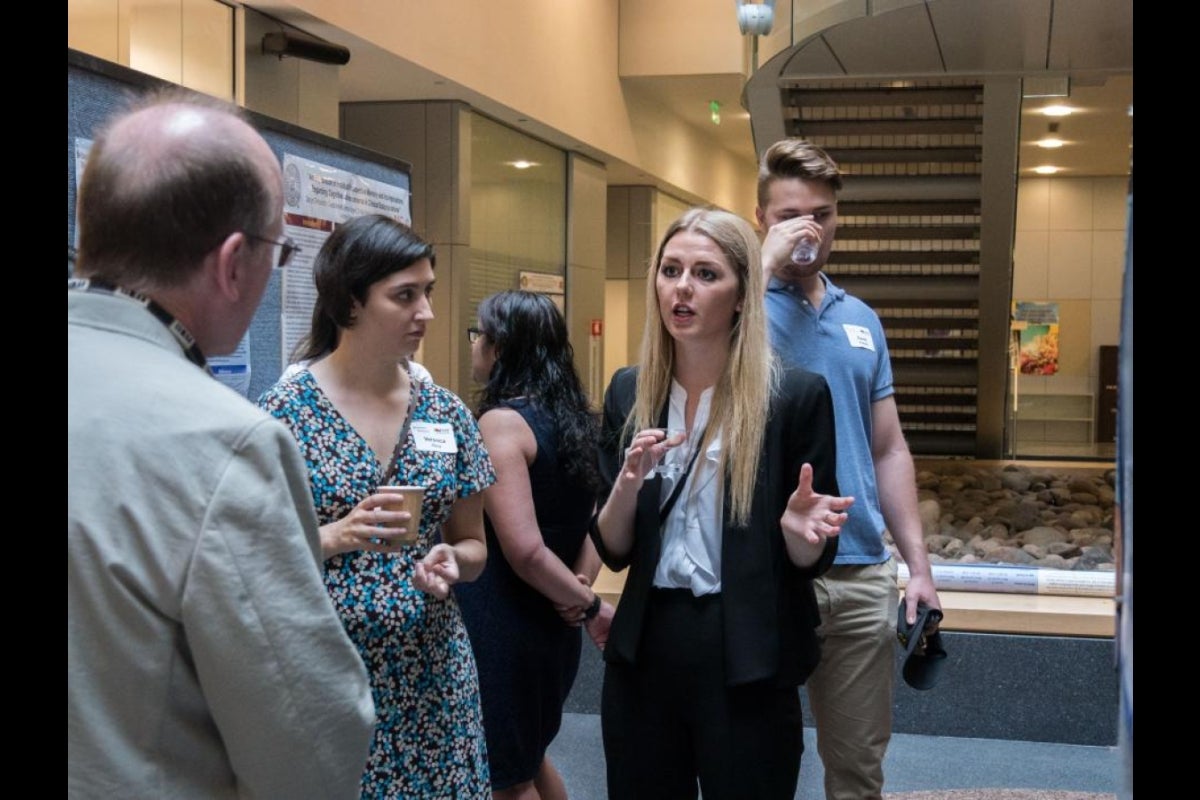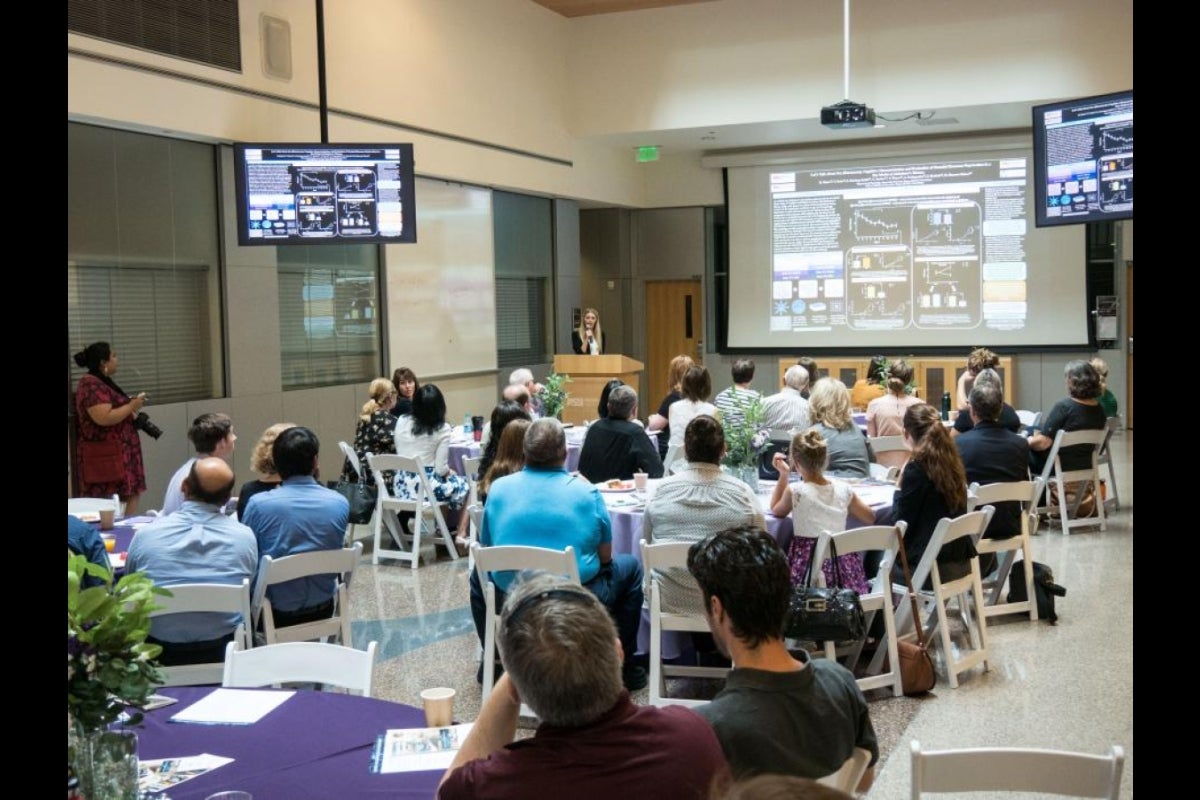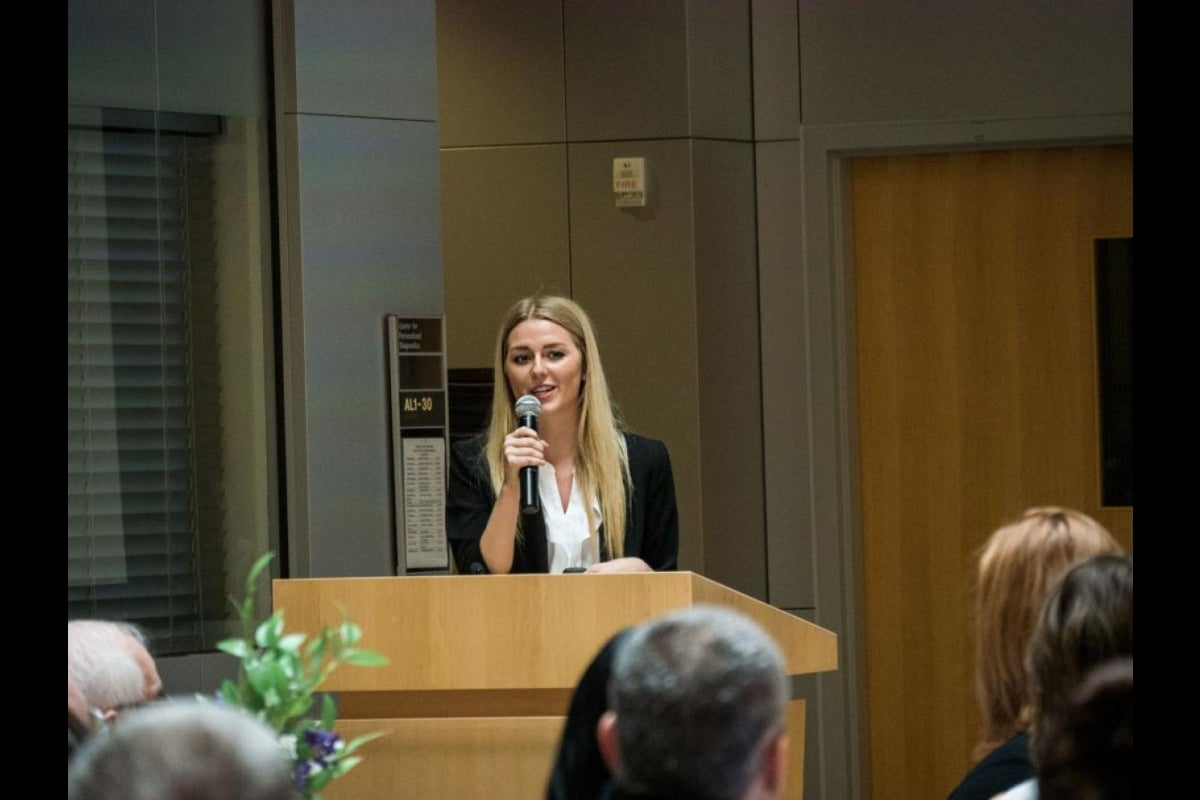ASU psychology undergraduate presents on neurobehavioral sex differences in Alzheimer’s disease

Haidyn Bulen shared her research at the ASU-Banner Neuroscience Symposium. Photo by Robert Ewing
Alzheimer’s disease is a devastating and progressive illness that affects almost 6 million Americans and their families. There are many open questions about the disease, including how it might differ between males and females.
Haidyn Bulen, an undergraduate student in the Arizona State University Department of Psychology, recently presented research on sex differences in Alzheimer’s disease. Bulen shared her research at the ASU-Banner Neuroscience Symposium, hosted by the ASU-Banner Neurodegenerative Disease Research Center. The symposium capped off the Banner-ASU Neuroscience Scholars Program, which is a paid, eight-week research training program available to undergraduate students nationwide.
For the eight weeks, the neuroscience scholars work full-time in labs at ASU, Banner Alzheimer’s Institute or Banner Sun Health Research Institute on research projects that ask questions about Alzheimer’s disease, Parkinson’s disease and other neurodegenerative diseases.
Bulen spent the summer in Heather Bimonte-Nelson’s Behavioral Neuroscience of Memory and Aging Lab, working with psychology graduate student Veronica Pena. Together, Bulen and Pena used a rodent model which contained genes that were altered to create a model of Alzheimer’s disease. They wanted to find out if cognition differed between males and females with inherited Alzheimer’s disease in the absence of biological sex hormones like estrogen and testosterone. The researchers tested the learning and memory of males and females with and without sex hormone deprivation. Rats with the genes that model Alzheimer’s disease made more learning and memory errors than those without the altered genes. Hormone deprivation increased the memory impairment.
“Our results are intriguing and suggestive for future research along these lines,” Bulen said.
Bulen’s experience as a Banner-ASU Neuroscience Scholar culminated in her giving a talk and poster presentation about her research to over 100 peers and neuroscience experts. The student presenters were nominated by their mentors.
“I was excited to present my research, but it was also a nerve-wracking experience,” Bulen said. “I am so thankful to have my mentor nominate me for such an honor.”
Bulen believes she has found the perfect fit for her passions.
“There are so many different components of neuroscience that I’m fascinated by. I’m in love with the novelty of it — there is so much that we don’t know, but with how technology and science are rapidly advancing, it is so cool that we can be a part of innovative discoveries in the future,” she said.
In addition to presenting at the ASU-Banner Neuroscience Symposium, Bulen is a Barrett Bidstrup Fellow and an ASU Department of Psychology Scholar award winner. The Barrett Bidstrup Fellowship is awarded to students in Barrett, The Honors College who are pursuing research with the mentorship of a faculty member.
Bulen, a psychology and neuroscience double major with a minor in Spanish, plans to study abroad in Spain this fall, then complete her honors thesis in the Psychology Department in the Bimonte-Nelson laboratory. After graduation, she plans to pursue her doctorate in either behavioral or clinical neuroscience.
More Science and technology

ASU-led space telescope is ready to fly
The Star Planet Activity Research CubeSat, or SPARCS, a small space telescope that will monitor the flares and sunspot activity…

ASU at the heart of the state's revitalized microelectronics industry
A stronger local economy, more reliable technology, and a future where our computers and devices do the impossible: that’s the…

Breakthrough copper alloy achieves unprecedented high-temperature performance
A team of researchers from Arizona State University, the U.S. Army Research Laboratory, Lehigh University and Louisiana State…





